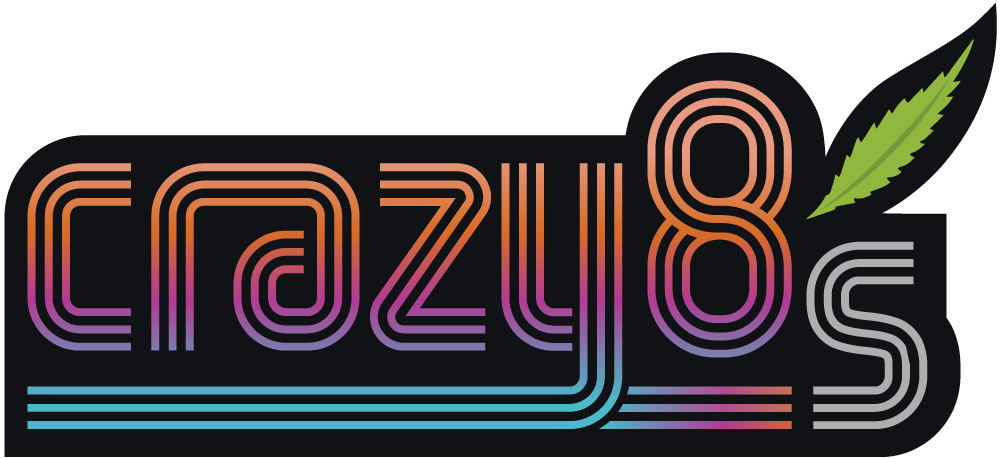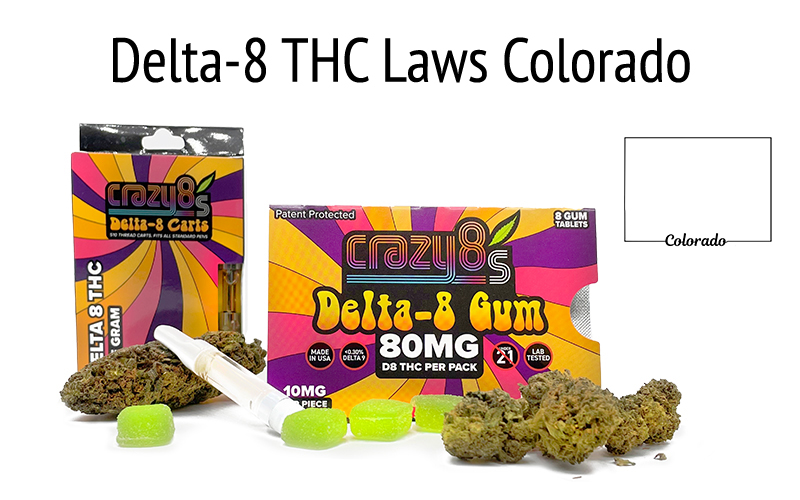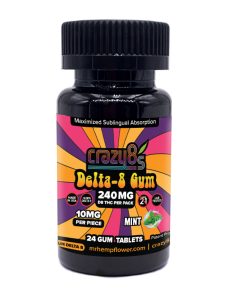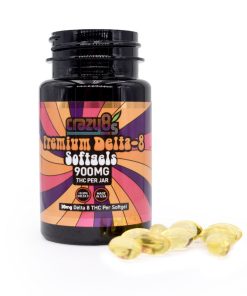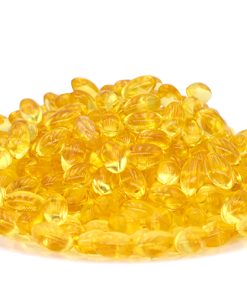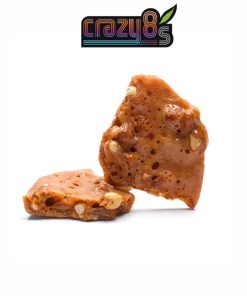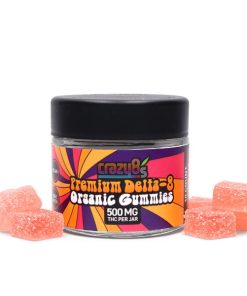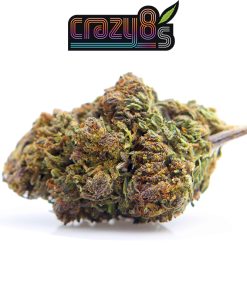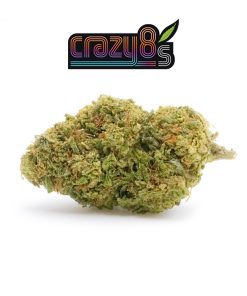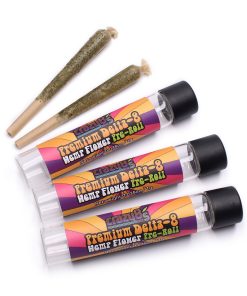Delta 8
What Does the Future Hold for Delta 8 THC in Colorado
It may come as a surprise, but Colorado is one of the states that have banned delta 8 THC. The Centennial State has a long history with cannabis because it’s among the first to legalize recreational and medical marijuana. But, its lax approach to cannabis didn’t transfer onto Δ8-THC.
This article explains the reasons behind the ban, where to buy once legalized, and what the future holds.
Is Delta 8 THC Legal in Colorado?
Delta 8 THC is illegal in Colorado. The state banned the use of chemically modified or synthetically derived delta 8 in hemp extracts.
What is Delta 8 THC?
Delta 8 THC exploded in popularity and revolutionized the hemp market, offering a high-quality buzz. This unique cannabinoid naturally occurs in trace amounts in the hemp plant, so makers create it from hemp-derived CBD in a lab.
Users love it because it’s less intense than delta 9 and gives a relaxing buzz with a fun psychotropic experience. Because it’s less potent, Δ8-THC doesn’t cause the typical side-effects as traditional THC. This compound provides a relaxing euphoric experience but also improves appetite, helps with sleep, pain, anxiety, nausea and vomiting.
Buying Delta 8 THC in Colorado
Unfortunately, delta 8 is illegal in Colorado, so you don’t have access to legal products. The good news is, its popularity is rising at a national level, so there might be a change in the future. For now, stick to full spectrum products with no delta 8 THC.
When starting with delta 8, it’s essential to go for an established brand that crafts quality items using natural ingredients. At Crazy8s, we collaborate with USA hemp farmers who grow organic hemp crops and test them multiple times throughout the process. As a result, our products are pure, potent, and safe, as presented in the Certificate of Analysis.
If you’re a beginner, gummies are a great introduction to the world of Δ8-THC. They are easy and convenient and allow you to enjoy a buzz without the smell and taste of hemp. The Crazy8s Delta 8 THC Gummies are a vegan-friendly formula crafted from hand-picked natural ingredients that fit your wellness routine perfectly.
Our gummies are available in two strengths, 10mg and 50mg, which can be adjusted to your tolerance levels. The 10mg gummy is plenty for someone starting out, while the 50mg is a high potency gummy that’s perfect for a seasoned user looking to unwind and relax before bed.
Gummies take a bit to work, so it’s wise to wait until taking more. In 40 to 60 minutes after consumption, you should feel a clear-headed “high” and sharper focus as calmness and comfort overtake the body. You may experience relief and peacefulness or a floating sensation that achieves its peak and lasts about 3 to 8 hours.
Is Delta 8 THC Legal in Colorado?
Delta 8 THC is illegal in Colorado. In May 2021, the state banned delta 8 THC from hemp extracts.
The Colorado Health Department issued a notice to hemp registrants clarifying the use and production of “chemically modified” and “synthetically derived” THC isomers — including delta 8 and delta 10 THC — originating from precursors like hemp CBD.
Due to uncertainty about how delta 8 is made, the department banned it (and similar THC isomers) from food, dietary supplements, and cosmetics. The notice states that “chemically modifying or converting any naturally occurring cannabinoids from industrial hemp is non-compliant with the statutory definition of ‘industrial hemp product.’”
What Does the Future Hold?
The Centennial State banned Δ8-THC from hemp extracts due to safety concerns and has strict standards for hemp CBD products. But, as its popularity continues to rise, we’ll likely see this compound back on Colorado’s hemp scene.
For now, the market remains largely unregulated, and vendors put out low-quality products, which contributes to lawmakers keeping the compound banned.
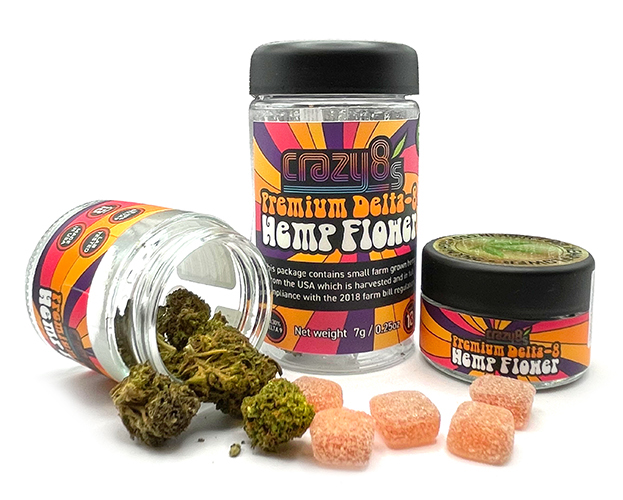
Is Delta 8 THC Legal Federally?
Did the DEA confirm the legal status of Δ8-THC? This cannabis compound has been sowing confusion in the cannabis industry, and recently, there was a response from the DEA.
In an advisory letter to the Alabama Board of Pharmacy that was seeking to clear up regulatory questions surrounding this compound, the DEA noted that cannabinoids (including Δ8-THC) synthetically produced from non-cannabis materials are controlled under the Controlled Substances Act. This letter provides nonbinding advice but doesn’t clarify whether Δ8-THC made from hemp-derived CBD would be considered synthetically produced.
As you know, most Δ8-THC on the market is produced by combining cannabis (hemp-derived CBD) and non-cannabis (solvents) materials. Because it’s produced this way, Δ8-THC is considered “semi-synthetic.” The letter doesn’t address the true nature of this compound, so the full implications remain unclear.
In addition, the letter notes that “cannabinoids extracted from the cannabis plant that have a Δ9-THC concentration of not more than 0.3 percent on a dry weight basis meet the definition of ‘hemp’ and thus are not controlled under the CSA.” Meaning, Δ8-THC extracted from hemp with no more than 0.3% delta 9 THC is legal on a federal level.
Regulatory initiative surrounding Δ8-THC products is lacking, so states have implemented their own rules. The need for proper regulation is more than obvious, but, for now, Δ8-THC derived from cannabidiol remains in a gray legal area federally.
No, delta 8 THC is not legal in Colorado. The Marijuana Enforcement Division (MED) banned the use of chemically modified or synthetically derived delta 8 in hemp extracts.
No. The manufacture, sale, and distribution of delta 8 derived from hemp CBD is illegal in Colorado.
If you’re living in a state that’s friendly towards delta 8 THC, you can. In Colorado, delta 8 made from hemp CBD is illegal, so you should avoid ordering products online.
No, it’s not. As of this writing, 19 states have banned or restricted this cannabinoid, including Colorado.
Read our legal disclaimer HERE. While we try to stay as up to date as possible on all state laws, you should do your own due diligence and work with a legal professional to ensure you are operating legally in your state or territory at all times.
